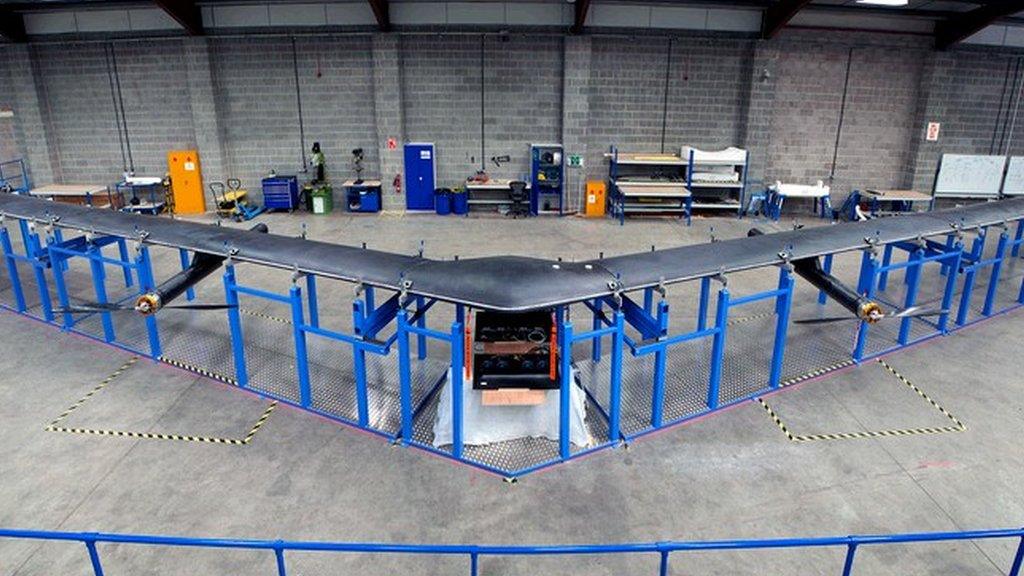Facebook M: The call centre of the future
- Published
- comments
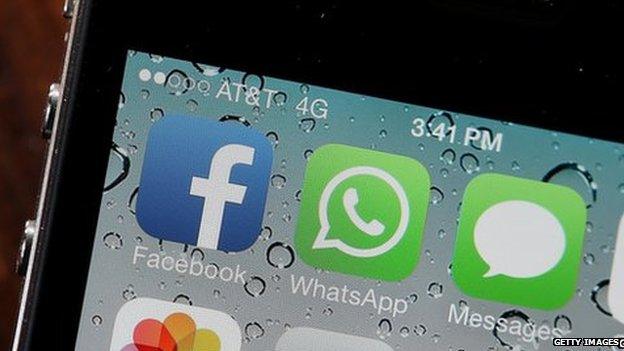
Facebook is in a strong position in the digital assistant race
Digital assistants like Apple's Siri, Microsoft's Cortana and Google Now all share one key thing in common: the more they know about you, the more useful they become.
And so that's presumably why Facebook has just launched its own digital assistant, M, to a few hundred people out here in the Bay Area.
Unfortunately, I'm not one of them. So for the time being at least we have to take Facebook's word for it when it comes to what M can do.
"M is a personal digital assistant inside of Messenger that completes tasks and finds information on your behalf," explains David Marcus, head of Messenger at Facebook.
"It's powered by artificial intelligence that's trained and supervised by people."
"Unlike other AI-based services in the market, M can actually complete tasks on your behalf. It can purchase items, get gifts delivered to your loved ones, book restaurants, travel arrangements, appointments and way more."
Marcus was formerly at PayPal, so his expertise is clearly being utilised here to make Facebook a big(ger) platform for payments - "M, pay my Mum $300", you can imagine. Or perhaps more likely, "M, please ask Mum nicely for $300".
The business model for Facebook is obvious. Marcus told Wired magazine, external: "We start capturing all of your intent for the things you want to do," says Marcus.
"Intent often leads to buying something, or to a transaction, and that's an opportunity for us to [make money] over time."
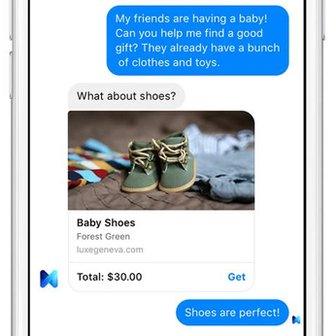
Catching the intent for the things you want to do
But money services aside, Facebook is undoubtedly in a very strong position in the digital assistant race. As a platform, it knows more about us than any other social network.
It certainly has more on us than Apple or Microsoft do. The key weakness of both Siri and Cortana is the sense you have to really feed it stuff before it becomes useful. Microsoft consider Cortana's relatively small knowledge base a privacy protection - but a harsher critic would call it basic, and less intelligent.
People-powered
What is more unusual about Facebook's entry is that the artificial intelligence element of Facebook M will be "supervised by people".
I've gone back to Facebook for more clarity on what exactly this means.
They're not adding much, other than: "More and more of M's work will become automated over time as the system learns".
"This will help us expand the service, make it faster and scale to more people."
One conclusion to take from that would be that right now Facebook's platform has a human backend - a team of people handling some of the more difficult or complex queries. That would explain why more tasks would need to be automated in order for M to be rolled out to more people.
Whatever it means - and I'll keep you updated - Facebook will need to be clear every step of the way.
What it will want to avoid is a repeat of the scandal that doomed Spinvox, external - a voicemail transcription service that was billed as automated, only to later admit (low paid) humans were doing the grunt work to make the service function.
Facebook call centre
Then again, would a human back end be such a bad thing? I recently spent hours (and hours) on hold with my bank after I had my card blocked for fraud prevention. It was utterly infuriating.
Marcus' vision, as shared in this Wired article about M, external, is that I'd be able to ask M to sort it all out for me. Rather than having to sit on hold at 4am myself (timezones, who needs them), an "M trainer" will do it for me.
He told Wired: "Facebook's M trainers have customer service backgrounds. They make the trickier judgment calls, and perform other tasks that software can't."
He outlines a clear equation. The smarter the artificial intelligence, the less burden on the M trainers.
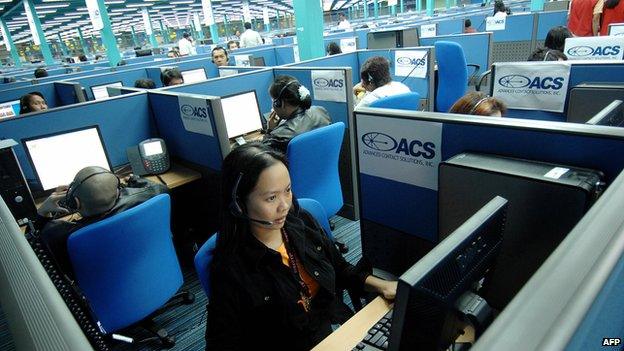
Facebook's M trainers are to have customer service backgrounds
The more the AI can do, the less employees Facebook will need.
But they do seem to be interested in making M have a human touch.
Which at a time when the world is justifiably concerned about Silicon Valley firms inventing technologies that make entry-level or low-skilled jobs evaporate, the possibility of a global call centre is an interesting change of direction.
And for everyone else, it could be a system that could spell the end of hours on hold, endless security questions and voice-activated phone menus.
The downside, of course, is that you'll be sharing more data with Facebook than ever before.
As we're often reminded, losing elements of our privacy is the trade-off for using a service that's free.
But how about this one: would you trade more of your personal data in return for a life without all the annoyances of customer service?
- Published29 July 2015
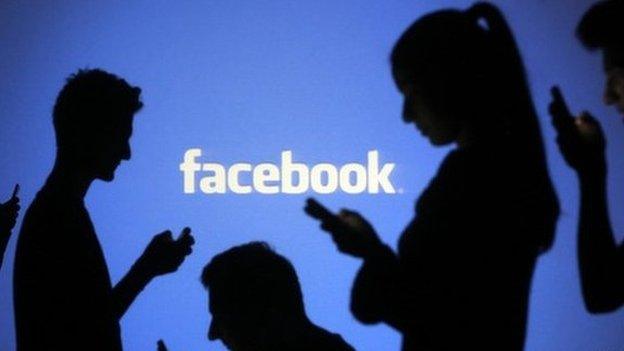
- Published30 July 2015
